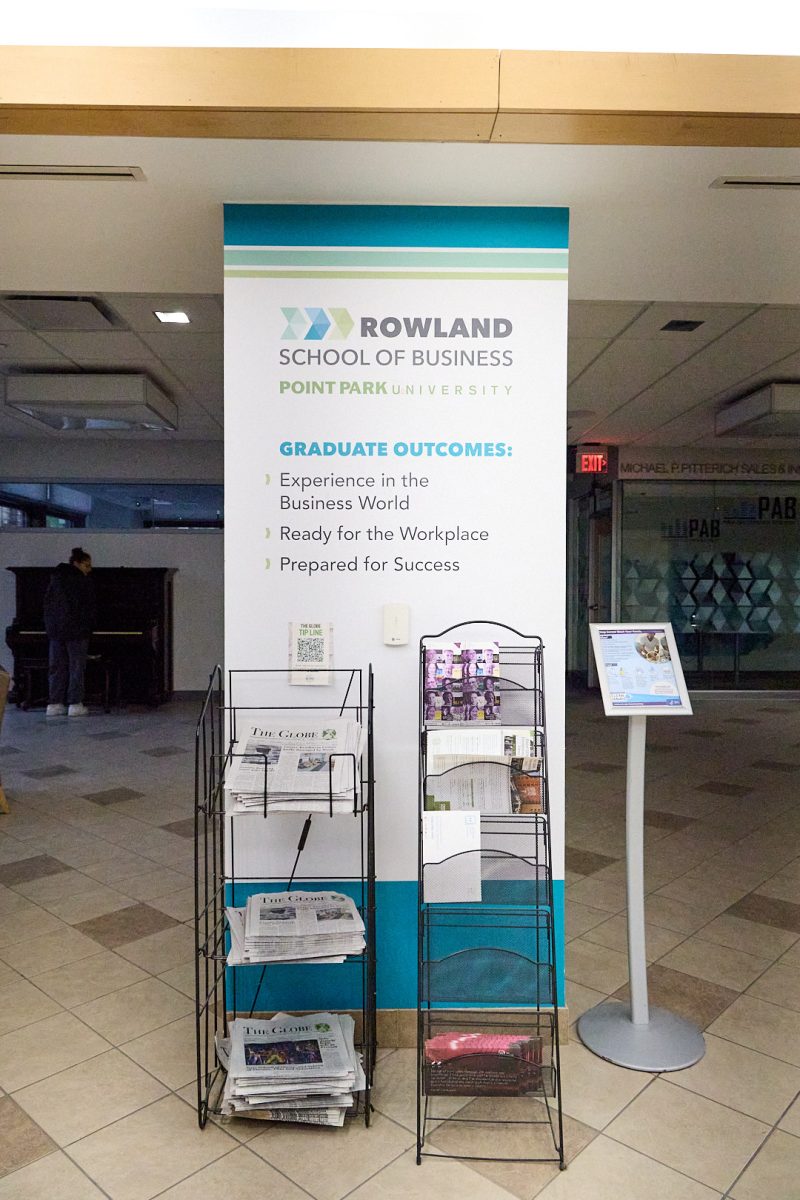The Rowland School of Business intends to launch several changes in the fall 2025 semester, including a path to degree completion in three years instead of four.
Nearly all courses will be delivered in an eight-week format as either online, face-to-face or hyflex classes. Emphasis will be put upon experiential opportunities such as internships, co-ops and studying abroad.
The idea for these changes came after multiple high schools asked the School of Business to increase the amount of dual enrollment credits their students could take, according to Patrick Mulvihill, a member of the department of management at the School of Business.
Mulvihill said within these high schools, there were a few superintendents who brought up the idea of having students complete their degree in two or three years.
“My first reaction was no way, that’s impossible,” Mulvihill said.
“However, at the same time, program directors were also hearing from professionals that we’re starting to investigate hiring graduates early,” Mulvihill said. “The combination of those two things caused the School of Business to really look into shrinking the degrees from four years to three years.”
“One thing that I always tell people is you always hear the word, ‘accelerating the degree,’ but what it’s really all about is providing flexibility,” Mulvihill said.
Sandra Mervosh, director of the human resources management program, also worked on these changes within the School of Business.
Mervosh said an important thing to note is that administrators have taken more of a holistic approach to education. Mervosh said that this way, the school is looking at the curriculum and how it was being taught.
“The driving force is always the students’ needs and meeting the industry’s need,” Mervosh said.
There is no content being eliminated in the eight-week format. Instead, the content is intended to be more focused. This means instructors must approach content in an extremely efficient manner, Mervosh said.
“I’ve been doing this a while, and the students in my program really enjoy the focus,” Mervosh said.
The changes are currently being pilot tested slowly throughout each of the programs but will be fully implemented in fall 2025.
Mulvihill said it’s not just about the accelerated degree pathway. It is also about the modality—if the class is face-to-face, online or hyflex.
“That approach enables us to kind of re-engage students and really make the academic experience much more valuable,” Mulvihil said.
Riley Beight, a junior SAEM major, said the changes can be good, especially if it gets a student a job quicker.
“I think accelerating the degree will get people working faster in the field, but that can also have a downside of rushing through college and the time we have to get internships,” Beight said.
“It also is sometimes hard to be taken seriously at 20-21 years old, so being a little older due to the fourth year of school makes a really big change for interviews and such.”
Beight said he feels he would have been interested in these changes when starting his own degree. While it may turn some people away, it could bring other people in.
Brooke Ripper, a business management major, said that the changes will only help the school.
“Those changes in my opinion, as a business management major, would be worth a try,” Ripper said. “It’s always worth a try to see what works best.”
Ripper said cutting completion time for a business degree down as much as possible means she can work more hours and gain more job experience sooner.
“My overall thoughts are any changes can be good,” Ripper said, “Just find what works best for you.”










